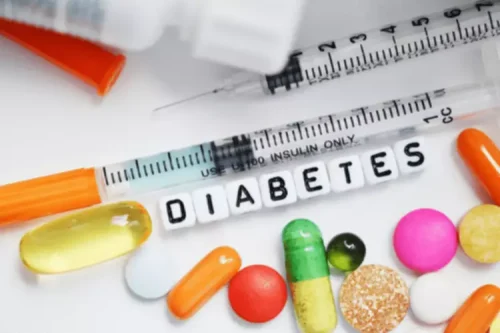
Many people stay in this stage their whole lives and never progress, but most of those who eventually develop an alcohol use disorder begin here. There are different types of alcoholics, alcoholic physical appearance alcoholic personalities, and tolerances, but the health effects are the same, especially long-term. Prolonged and heavy alcohol consumption permanently changes brain chemistry.
- Discover effective strategies for alcohol detox, including hydration, nutrient-rich foods, adequate rest, and professional support, to ensure a successful recovery journey.
- This is relatively rare and occurs in 5-10% of alcohol-dependent people.
- Thousands of people find a solution to their drinking through alcohol rehab each year.
- Alcohol detox medications, including benzodiazepines, disulfiram, naltrexone, and acamprosate, play a crucial role in managing withdrawal symptoms, supporting sobriety, and ensuring a safe detox process under medical supervision.
- According to the American Psychiatric Association’s Diagnostic and Statistical Manual of Mental Disorders (DSM-IV), Alcohol Dependence and Alcohol Abuse are among the mental disorders that are most common.
- We are available to help you end your drinking or your loved ones struggle with alcohol today.
Graduate School of Addiction Studies

Now is the time to line up support from addiction specialists, mental health professionals, friends and family, and others living with an alcohol use disorder. Treating the alcohol use disorder, along with the health problems caused by chronic, heavy drinking, may be possible. The first step will likely be a medically supervised detox, which will help rid your body of toxins and manage the symptoms of withdrawal.
- Some are offered on an inpatient basis (allowing you to move out of your home to get care), and others are available for outpatient treatment.
- Finally, a history of multiple withdrawal experiences can exacerbate cognitive deficits and disruption of sleep during withdrawal (Borlikova et al. 2006; Stephens et al. 2005; Veatch 2006).
- You’ll live in safe, substance-free housing and have access to professional medical monitoring.
Begin The Journey To Lasting Recovery
By addressing stigma and shame surrounding alcoholism through education, support groups, and self-compassion, individuals can overcome these negative attitudes and take the first steps towards recovery. Finally, it’s important for individuals to practice self-compassion and forgiveness. Recovery from alcoholism is a difficult journey that may involve setbacks or relapses along the way. Instead of feeling ashamed or guilty about these experiences, individuals should focus on learning from them and continuing to move forward towards their goals. Completing treatment for alcoholism is a significant accomplishment, but it’s important to remember that recovery is an ongoing process.
Addiction and Mental Health Resources
The first factor is the age at which a person has his or her first drink (the younger people are when they first start drinking, the more likely they are to drink more heavily into adulthood); the other factors are genetics and environment. If you’re in the “at-risk” population, it doesn’t take much to become dependent on alcohol or other drugs. The World Health Organization says no level of alcohol consumption is safe for health.[16] While you may not exhibit signs of AUD at this stage, your drinking habits could put you at risk for health effects if you keep consuming alcohol. Even though alcohol has become a significant part of everyday life, early-stage alcoholics often deny that they have a problem and may be defensive about their drinking. They may also rationalize, or make excuses, for their behavior and insist they can stop drinking whenever they feel like it.
- It doesn’t start causing harm until it results in frequent intoxication or withdrawal symptoms.
- Many thought that drinking problems were the result of weak willpower or a lack of self-control.
- In this transitional stage, as the disease becomes more severe, you may experience frequent blackouts and find that drinking and alcohol consume much of your thoughts.
- Some people — known as functioning alcoholics — can still maintain their life during this phase, but this is rare and likely to lead to liver damage or other alcohol-related illnesses.
Residential or inpatient treatment refers to the rehabilitation process of a person dealing with AUD. The duration of inpatient treatment varies by the treatment centers that offer them. Given that they agree not to consume alcohol, follow a sober life, and follow recommended treatments, alcoholism damage can be rectified in most cases. Recovery from AUD is marked by stages of abstinence, withdrawal, repair, and growth.
Severe Alcohol Use Disorder
If left untreated, physical symptoms of alcoholism may lead to other severe health issues, such as liver damage and organ failure. Psychological alcohol dependence, known as alcohol addiction or alcohol use disorder (AUD). Treatment options for end-stage alcoholism may include hospice care, palliative care, or hospitalization to manage complications.
Help For Alcoholism Is One Phone Call For Same Day Admission
In this transitional stage, as the disease becomes more severe, you may experience frequent blackouts and find that drinking and alcohol consume much of your thoughts. Fortunately, there are a number of treatment options available for individuals in the early stages of alcoholism. The most important thing is to seek help as soon as possible, before the disease has a chance to take hold and cause further damage to one’s health, relationships, and overall quality of life. Remember, it’s never too early to take control of your drinking and start living a healthier, happier life. Finally, a history of multiple withdrawal experiences can exacerbate cognitive deficits and disruption of sleep during withdrawal (Borlikova et al. 2006; Stephens et al. 2005; Veatch 2006). It’s important for individuals who struggle with alcohol abuse to seek help as soon as possible to prevent these serious health consequences from occurring.
Early signs of alcoholism, or alcohol use disorder (AUD), include increased tolerance and dependence on alcohol. In the later stages of alcohol use, addiction takes hold, affecting daily life and health. An end-stage alcoholic will experience life-threatening withdrawal symptoms when they stop drinking. This is why detoxing should be done with a medical professional’s supervision at an addiction treatment center.

Elevated Liver Enzymes

Tolerance symptoms include a need to drink more than you once did to achieve the desired level of intoxication. People experiencingthis phenomenon might even switch up their drink of choice — moving from beer or wine to hard liquor, for example, toaccommodate their need for more alcohol. Alcohol can be detected in blood for up to 12 hours after the last drink. It can also stay on your breath for hours, in saliva for 12 hours, in your urine for hours, and in your hair for up to 90 days.

American Addiction Centers (AAC) is committed to delivering original, truthful, accurate, unbiased, and medically current information. We strive to create content that is clear, concise, and easy to understand. If you’re not certain how much you drink, consider using an app on your phone like Reframe.